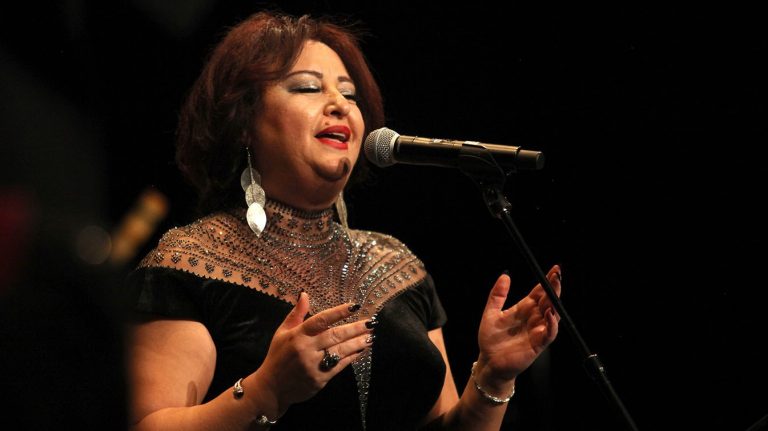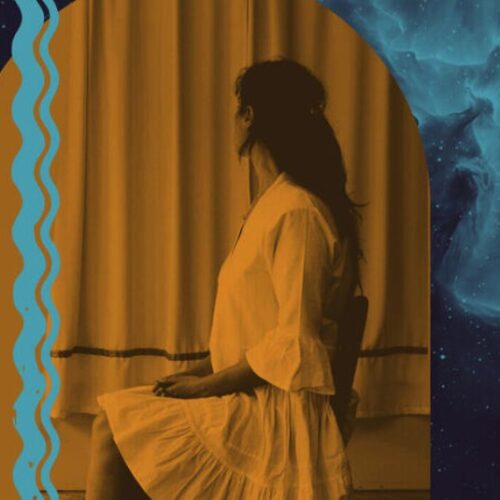Additional Information
Soprano Lubana Al-Quntar is one of the leading lights of Arabic singing, and Montreal music lovers will have the chance to discover her art rooted in the great refinement of the Middle East. Offering such an indoor experience is one of the great specialties of the Montreal Arab World Festival, which starts this Friday, October 29.
For the artisans and users of PAN M 360, this is an opportunity to make us more aware of the traditional and classical music of the Arab world and, needless to say, to talk about the challenges of female singing with Lubana Al-Quntar, who was kind enough to answer our questions.
PAN M 360: You were born in Damascus, Syria to a family of traditional singers. A descendant of famous Syrian singer, Amal Al Atrash (Asmahan), and renowned composer and singer of the previous century. Can we know more precisely the lineage between you and Asmahan and her brother the great composer Farid El Atrash? How those legends of modern arabic culture had an impact on your development and career?
Lubana Al-Quntar : Asmahan’s father is the cousin of my grandfather (from my mother’s side). Since my childhood, I grew up with the stories of these legends, and the challenges they faced to perpetuate their art and music. I feel I have a big responsibility in extending the legacy of the family with the musical path that I am pursuing. The challenges that I face in my artistic career alike my predecessors, push me further to follow the same path. Some aspects of Asmahan’s voice resembles mine, especially in its depth and tessiture, which challenges me even more to pursue the legacy.
PAN M 360: You trained in classical international conservatories under the supervision of renowned singers such as Galina Khaldieva, Kenneth Woollam, and Maestra Mya Besselink. You also have worked with great conductors – Daniel Barenboim, Ricardo Mutti, Sara Beaker, etc. So you had both classical training as a soprano singer : arabic and occidental. What are the main differences in voice training? Do you draw from both cultures in your own voice identity?
Lubana Al-Quntar : There is a fundamental difference between the two types of Arabic singing and classical opera. Whereas, for operatic singing, the production of the sound and its center is through the head voice. As for Arabic singing, it is from the throat. One of the important recommendations that my teachers told me about is that I should give up Arabic singing (the throat), especially in the early stages of study, because placing the vocal cords within two different singing styles and techniques will negatively affect the voice and prevent its perfect and proper development. I followed this advice for many years until I mastered the techniques of operatic voice and reached the level of professionalism. After the stability of the voice and its maturity, I began to benefit from everything I had learned in operatic singing and employed it to serve Arab singing… in terms of breathing and correct resonance.. and the extension of lyrical sentences.
PAN M 360: As a coloratura soprano, you explore the wide repertoire she sings in folk, traditional Syriac and Aramaic languages, pop, and classical opera. Can you add something to that description? What makes you special among the Arabic community of classical & traditional singers?
Lubana Al-Quntar : When I started my career in Syria, I was the first opera singer as there was no opera training yet. I was the first student of the department. I then travelled to pursue my studies in London and Germany and have become the first Syrian Opera singer with a great mastery of opera’s techniques. On the other hand, I have also mastered traditional and folk Arabic songs. In other words, I have a great mastery of both repertoires that require a completely different way of singing and voice positioning. It is very rare to find an Arab singer that can do both professionally.
PAN M 360: You won the prestigious title of the First Arab Opera Singer from Syria. In 1996, you won the first audience prize and fourth overall prize in a Belgrade International Singing Competition. In 2000, you were awarded fifth prive at the The Queen Elizabeth Singing Competition, Brussels, Belgium. What are for you the most precious of those prices?
Lubana Al-Quntar : These prices are very special for me since it was the first time for a Syrian to attend these international music competitions:
* The Belgrade International singing competition: I was still a student and this prestigious competition gave me a very high affirmation of my talent and a great motivation to continue on my path.
* The Queen Elizabeth singing competition was the key moment that propelled my career out of the Arab world and resulted in many European tours in the world of opera.
PAN M 360: Between 2006 and 2012, you served at the Syrian National Conservatory as the Voice Chair for the Department of Opera Singing. You also founded and launched the Department of Classical Arabic Singing allowing students to study both Western and Arabic forms together for the very first time. So the teaching aspect of your career seems to be very important. What does it bring to you?
Lubana Al-Quntar : I started teaching opera singing at an early stage in my career, as I wanted to transfer my experience that I had obtained through my studies with great masters in Europe and the important experience in the competitions that I participated in. I wanted new students who are excited about professional opera singing to be familiar with all these singing techniques.
Opera singing was not at the heart of our culture in Syria… and success in it required extra effort and perseverance. And when the new students saw that the one teaching them is from their culture, and that success is possible and not impossible, my presence as a Professor in the singing department was special on a personal and practical level.
I am proud that I founded the Arabic Singing Department at the Higher Institute of Music in Syria and developed a special technique to develop the voice, benefiting from my experience in operatic singing.This achievement is an important leap in my teaching career
PAN M 360 Can you talk a bit about the musicians that will play for you in Montreal?
Lubana Al-Quntar : I will meet the musicians for the first time! So far, working with them (virtually) has been great! Then I will sing Asmahan, Oum Kalthoum, Qudud halabiya, and traditional songs from Damascus as well as Persian, Kurdish, Armenian and Syriac / Aramaic chants.
PAN M 360: Have you sung in Canada before? If yes in what cities? About United States?
Lubana Al-Quntar : Yes at the Aga Khan foundation in Toronto. I have performed in many cities in the USA: New York, DC, Los Angeles, Michigan, etc.
PAN M 360: As a Syrian citizen you must have suffered in the last years. What are your thoughts about the situation? Where are you based now?
Lubana Al-Quntar : I have been in the USA since the tragic events in Syria (2012). It is very hard for me since all my family is still in Syria or in other places in the world.
Lugana Al-Quntar is performing at the Festival du monde arabe, 8 PM, Friday October 29.























